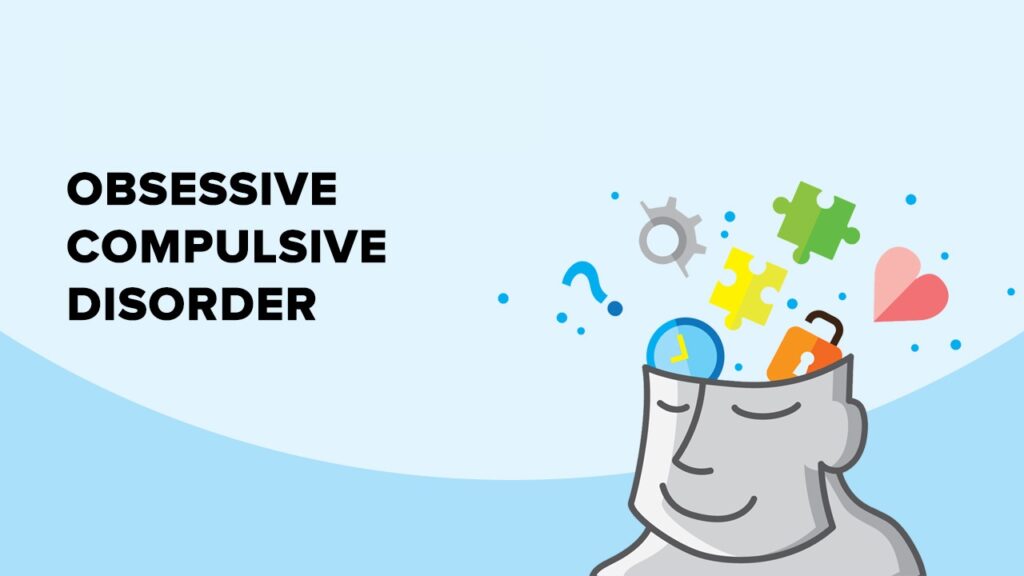OCD or Obsessive-Compulsive disorder is a mental condition where some obsessive thoughts lead to compulsive actions.
OCD is commonly linked to being extremely neat, tidy, and organized. But there is a lot more to it. Severe OCD can interfere and shake the quality of your life completely. However, various OCD treatments give a ray of hope. Remember that OCD is curable even though it feels hellish and hopeless.
Symptoms of OCD
OCD generally occurs during the teenage years. It starts with mild symptoms and as years pass by, the symptoms become severe and seem incurable.
There are two parts to an OCD symptom:
- Obsessions: Uncontrollable and demanding thoughts
- Compulsions: Uncontrollable actions or behaviors due to anxiety or stress
Symptoms of Obsessions
Obsessions are unwanted thoughts often intrigued by a theme. It might be due to fear of germs, theft, or FOMO. Some intrusive obsessions include thoughts of harming oneself or others. You may be prone to obsession if you have the below symptoms:
- Not wanting to use or even touch things that others have touched
- Wanting everything to be perfect and to the point. Feeling anxious if something is not placed in a certain symmetry
- Checking the lights, doors, and gas multiple times before leaving the house
- Repetitive intrusive thoughts about harming yourself or others
- Thoughts about things you do not want to do in the first place
Symptoms of compulsion
These are uncontrollable repetitive behaviors. People with OCD believe that compulsive behaviors relieve stress. Therefore they do things on a loop. Symptoms might include:
- Excessive hand washing
- Imprudently reassuring that the door is properly locked before leaving the home.
- Unable to stop counting things
- Unexplainable need to place objects in a precise way
OCD is debilitating. It consumes a lot of time and energy and interrupts daily work to a greater extent. OCD damages relationships and career and leaves life at stake.
OCD stops you from getting to school or work at the right time. It sucks out the enjoyment of social and fun activities. Depression and anxiety are layered upon OCD to make it even worse. Obsessive-compulsive disorder can also lead to suicide or self-harm.
Most people diagnosed with OCD are not mentally unstable. They know that their thoughts and actions make no sense. However, they feel powerless to control them.
On the other hand, we have people with delusional thinking. They strongly believe that their obsessions and compulsions are true. And whatever they are doing is the only way to protect themselves.
Causes of OCD
Genetics:
A family history of OCD increases the risk of getting affected.
Environment:
Childhood trauma might also be a major reason for obsessive-compulsive disorder.
Brain structure:
A Wreck in the brain structure including the frontal and prefrontal cortex disturbs neural functioning and surpasses decision-making capabilities. This also creates a hormonal imbalance in the serotonin and dopamine hormones leading to OCD.
Majorly, people with OCD have coexisting mental health disorders like depression, anxiety, bipolar, and dementia.
Diagnosis of OCD
These are the methods of assessment for OCD treatment
- Yale-Brown OCD scale. This scale comprises 54 common OCD symptoms. This scale is helpful to find the severity of Obsessive-compulsive disorder. A scale of 0 to 25 means mild OCD, 25 to 34 indicates moderate or severe Obsessions and compulsions. A range above 35 indicates severe symptoms and calls for immediate treatment.
- Physical and psychological evaluation to locate other potential problems that may cause OCD
- Thyroid abnormalities
- Blood cell count
- Drug screening
Treatment for OCD
OCD disorder can be treated in three different ways
● Intake of doctor-prescribed medications
Doctors usually follow a trial and error method to identify the right dosage for you. They may start with a mild dosage and adjust it according to the intensity of OCD.
Remember to ask your doctor about the medication and the possible side effects it can have on your health.
● Undergoing therapy
CBT or cognitive behavioral therapy has proven results for OCD. CBT is a form of therapy that works on one’s thoughts, behaviors, and feelings. A therapist will help you combat the obsessive thoughts and compulsive behaviors through various CBT techniques.
Therapy will help you regain your lost power and control or eliminate intrusive thoughts and actions. However, it is most beneficial if you combine medication along with therapy.
● Self-care at home along with the above-mentioned treatment methods.
Taking care of yourself is essential to exercise the benefits of medication and therapy. Make sure to stick to the medication no matter what. Always keep your doctor and therapist in the loop. Practice the new techniques you learned from CBT. Indulge in exercising, reading, or whatever that makes you feel light.
Remember, you are not alone in this!
